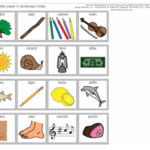Words That Start With D In Spanish
1. Día (day)
2. Dolor (pain)
3. Desierto (desert)
4. Diente (tooth)
5. Duda (doubt)
6. Ducha (shower)
7. Dedo (finger)
8. Dulce (sweet)
9. Dirección (address)
10. Deseo (wish)
11. Dama (lady)
12. Dólar (dollar)
13. Dos (two)
14. Dolor de cabeza (headache)
15. Delgado (thin)
16. Descanso (rest)
17. Descuento (discount)
18. Deporte (sport)
19. Dinero (money)
20. Doblaje (dubbing)
21. Dedicación (dedication)
22. Deseado (desired)
23. Descuido (carelessness)
24. Domicilio (residence)
25. Detalle (detail)
26. Diversión (fun)
27. Debilidad (weakness)
28. Disciplina (discipline)
29. Derrota (defeat)
30. Desvelo (insomnia)
More About
Welcome to another exciting blog post! Today, we will embark on a linguistic journey exploring the Spanish language and specifically, words that begin with the delightful letter “D”. As we delve into this subject, we will unravel an array of intriguing and useful vocabulary that will undoubtedly enhance your Spanish learning experience.
The Spanish language is a treasure trove of words, each holding its own unique charm and purpose. From everyday conversations to literary masterpieces, words beginning with the letter “D” play a significant role in the richness and diversity of this beautiful language. Whether you are a beginner or an advanced learner, expanding your vocabulary is always a great way to enhance your fluency and communication skills.
To begin, let’s explore some commonly used words that start with “D” in Spanish. One such word is “día,” which means “day” in English. This is a fundamental word that you will often encounter in simple greetings, such as “¡Buenos días!” which means “Good morning!”. Understanding and incorporating these everyday words will allow you to engage more confidently in conversations and better connect with Spanish-speaking communities.
Moving forward, we stumble upon words like “delicioso,” meaning “delicious,” and “divertido,” meaning “fun.” These adjectives not only facilitate describing sensations and experiences but also add depth and color to your expressions. Being able to accurately convey your feelings and opinions is essential for effective communication, and these words are perfect tools for that.
As we delve deeper into our exploration of words beginning with “D,” we encounter some Spanish words that are not direct translations for their English counterparts. For example, “desayuno” is the word for “breakfast” in Spanish. This culinary delight plays a vital role in Spanish culture, often consisting of mouth-watering items such as “dulces” (sweets) and “dónuts” (donuts). Learning these unique words not only expands your vocabulary but also allows you to immerse yourself in the exquisite cultural experiences of Spanish-speaking regions.
Spanish words that start with “D” encompass various aspects of daily life, including professions. For instance, “doctor(a)” refers to a medical professional while “dentista” denotes a dentist. Expanding your knowledge of such terms aids in both professional and social settings, enabling effective communication and understanding in diverse contexts.
Moreover, delving into different fields of interest, we unearth words that cater to specific hobbies and activities. For sports enthusiasts, words like “deporte” (sport) and “danza” (dance) become essential in conversations discussing athletic achievements or expressing personal hobbies. It is through such specialized vocabulary that we can truly embrace the diversity and vibrancy of the Spanish language.
In addition to everyday words, adjectives, professions, and hobby-related vocabulary, the words beginning with “D” in Spanish also introduce us to fascinating cultural aspects such as celebrations and traditions. For instance, “Día de los Muertos” (Day of the Dead) is a significant holiday celebrated in Mexico and other Latin American countries. Understanding specific cultural terms not only expands our knowledge but also promotes a deeper appreciation for the rich heritage and customs inherent in the Spanish-speaking world.
With this brief introduction to words that begin with “D” in Spanish, we have only scratched the surface of this captivating subject. As we progress through this blog series, we will explore more words, phrases, and idiomatic expressions that will further enrich your understanding and love for the Spanish language. So stay tuned for our upcoming posts, and on behalf of our team, we wish you happy learning! ¡Hasta luego!
FAQs:
1. ¿Cuáles son algunas palabras en español que empiezan con la letra ‘D’?
Respuesta: Algunas palabras en español que comienzan con la letra ‘D’ son: día, duda, dinero, doctor, deuda, decir, deber, dormir, difícil y destino.
2. ¿Cuál es el significado de la palabra “desayuno” en español?
Respuesta: “Desayuno” en español significa la primera comida del día, generalmente tomada por la mañana.
3. ¿Qué es un “diccionario” en español?
Respuesta: Un “diccionario” es una herramienta que contiene palabras y sus significados, utilizado para buscar definiciones y ampliar el vocabulario en español.
4. ¿Qué significa la expresión “dar la vuelta” en español?
Respuesta: “Dar la vuelta” es una expresión que significa cambiar de dirección o posición, dar un giro o hacer una inversión en una situación o problema.
5. ¿Cuál es la pronunciación correcta de la palabra “domingo” en español?
Respuesta: La pronunciación correcta de “domingo” en español es: do-MEEN-go.
6. ¿Qué es una “duda” en español?
Respuesta: Una “duda” en español es una pregunta o incertidumbre acerca de algo, cuando no se está seguro de algo o se necesita más información.
7. ¿Cuál es el plural de la palabra “dólar” en español?
Respuesta: El plural de “dólar” en español es “dólares”.
8. ¿Qué es un “delfín” en español?
Respuesta: Un “delfín” es un mamífero marino inteligente y juguetón, caracterizado por su cuerpo aerodinámico y su capacidad para nadar rápidamente.
9. ¿Qué significa la palabra “destino” en español?
Respuesta: “Destino” en español puede tener varias interpretaciones, pero generalmente se refiere al lugar o punto final al que alguien o algo se dirige.
10. ¿Cómo se dice “gracias” en español?
Respuesta: La palabra “gracias” en español es utilizada para expresar agradecimiento, y se pronuncia: GRA-see-as.











